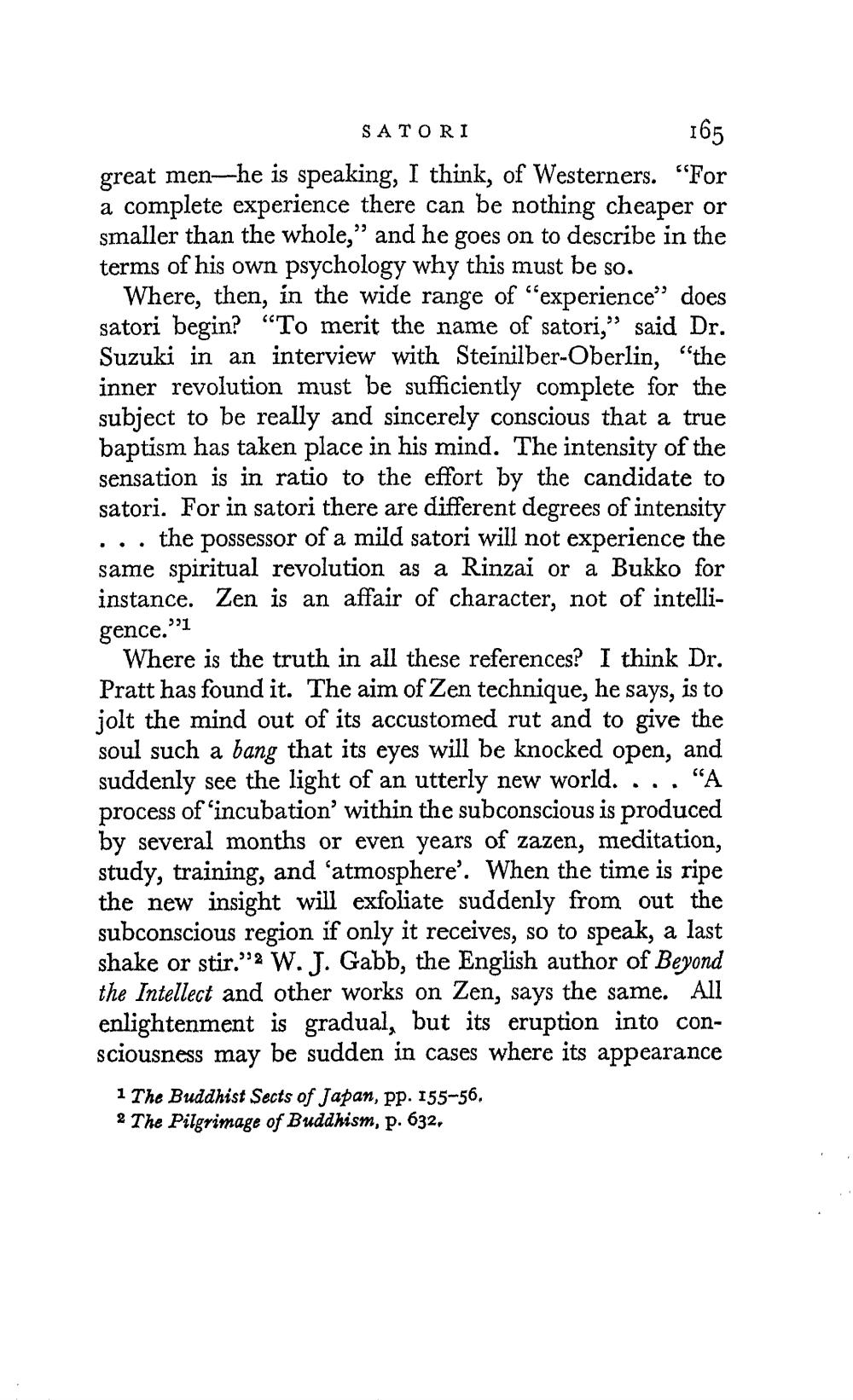________________
SATORI
165 great men-he is speaking, I think, of Westerners. “For a complete experience there can be nothing cheaper or smaller than the whole," and he goes on to describe in the terms of his own psychology why this must be so.
Where, then, in the wide range of “experience" does satori begin? “To merit the name of satori,” said Dr. Suzuki in an interview with Steinilber-Oberlin, "the inner revolution must be sufficiently complete for the subject to be really and sincerely conscious that a true baptism has taken place in his mind. The intensity of the sensation is in ratio to the effort by the candidate to satori. For in satori there are different degrees of intensity ... the possessor of a mild satori will not experience the same spiritual revolution as a Rinzai or a Bukko for instance. Zen is an affair of character, not of intelligence."
Where is the truth in all these references? I think Dr. Pratt has found it. The aim of Zen technique, he says, is to jolt the mind out of its accustomed rut and to give the soul such a bang that its eyes will be knocked open, and suddenly see the light of an utterly new world. ... "A process of 'incubation' within the subconscious is produced by several months or even years of zazen, meditation, study, training, and 'atmosphere'. When the time is ripe the new insight will exfoliate suddenly from out the subconscious region if only it receives, so to speak, a last shake or stir."W. J. Gabb, the English author of Beyond the Intellect and other works on Zen, says the same. All enlightenment is gradual, but its eruption into consciousness may be sudden in cases where its appearance
1 The Buddhist Sects of Japan, pp. 155-56. 2 The Pilgrimage of Buddhism, p. 632,




